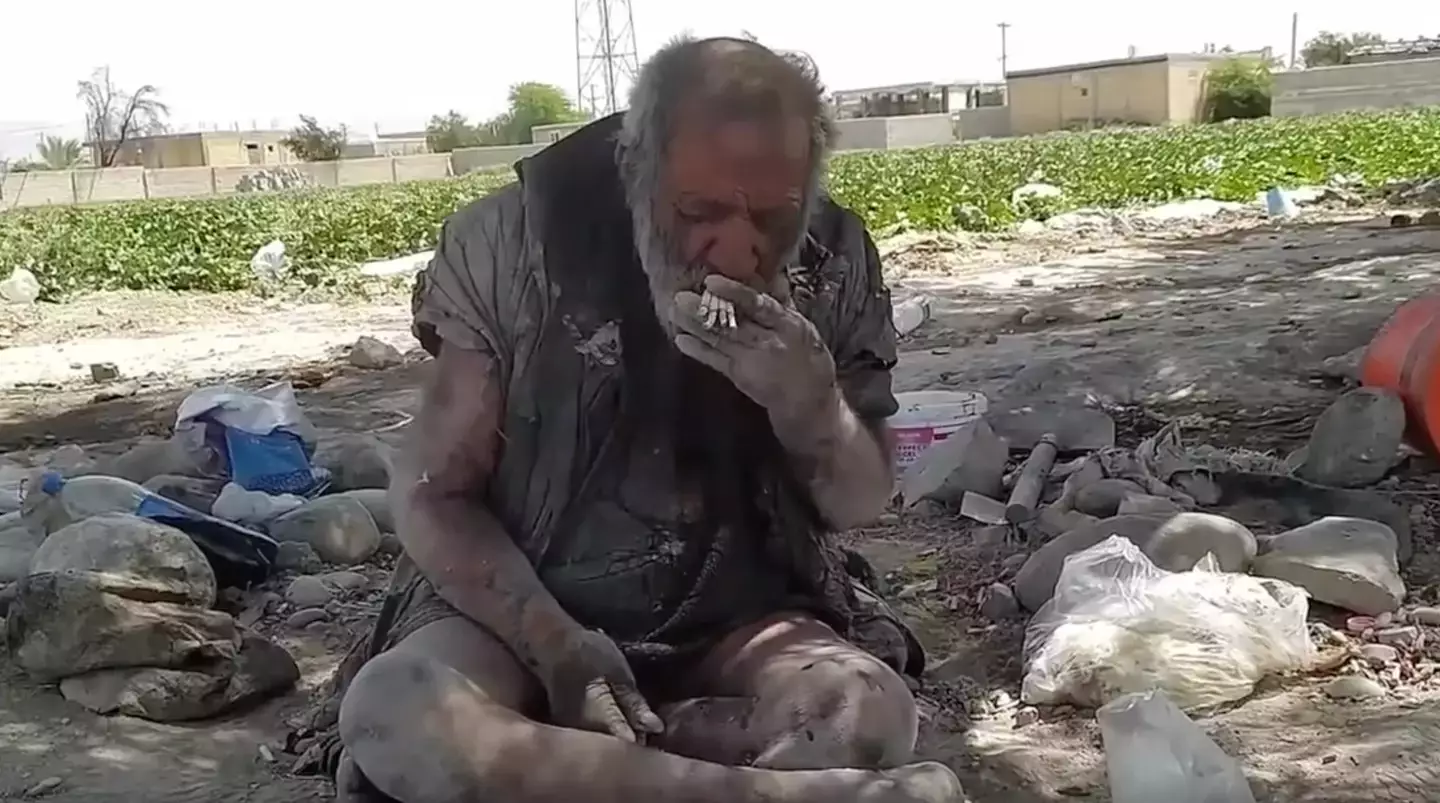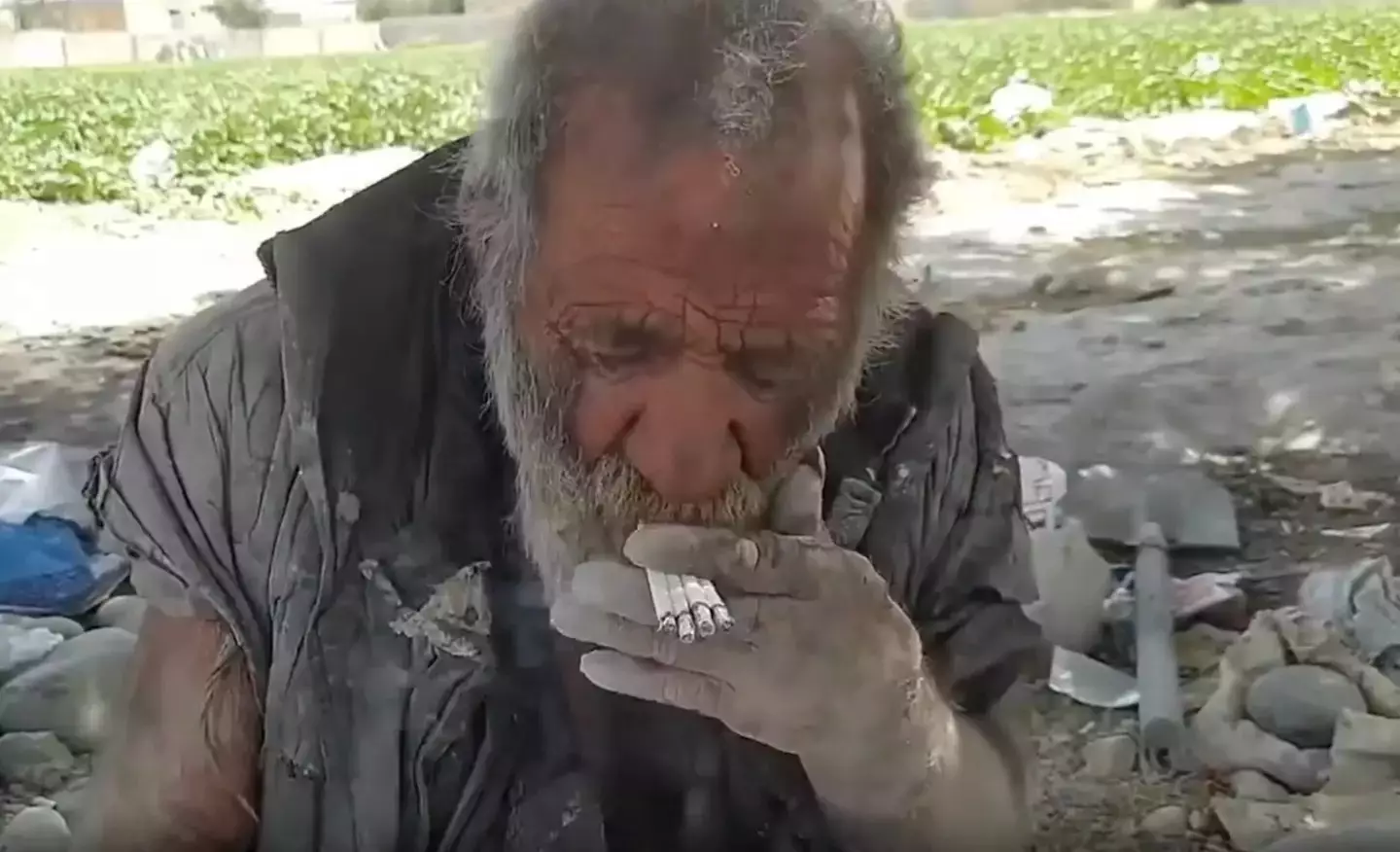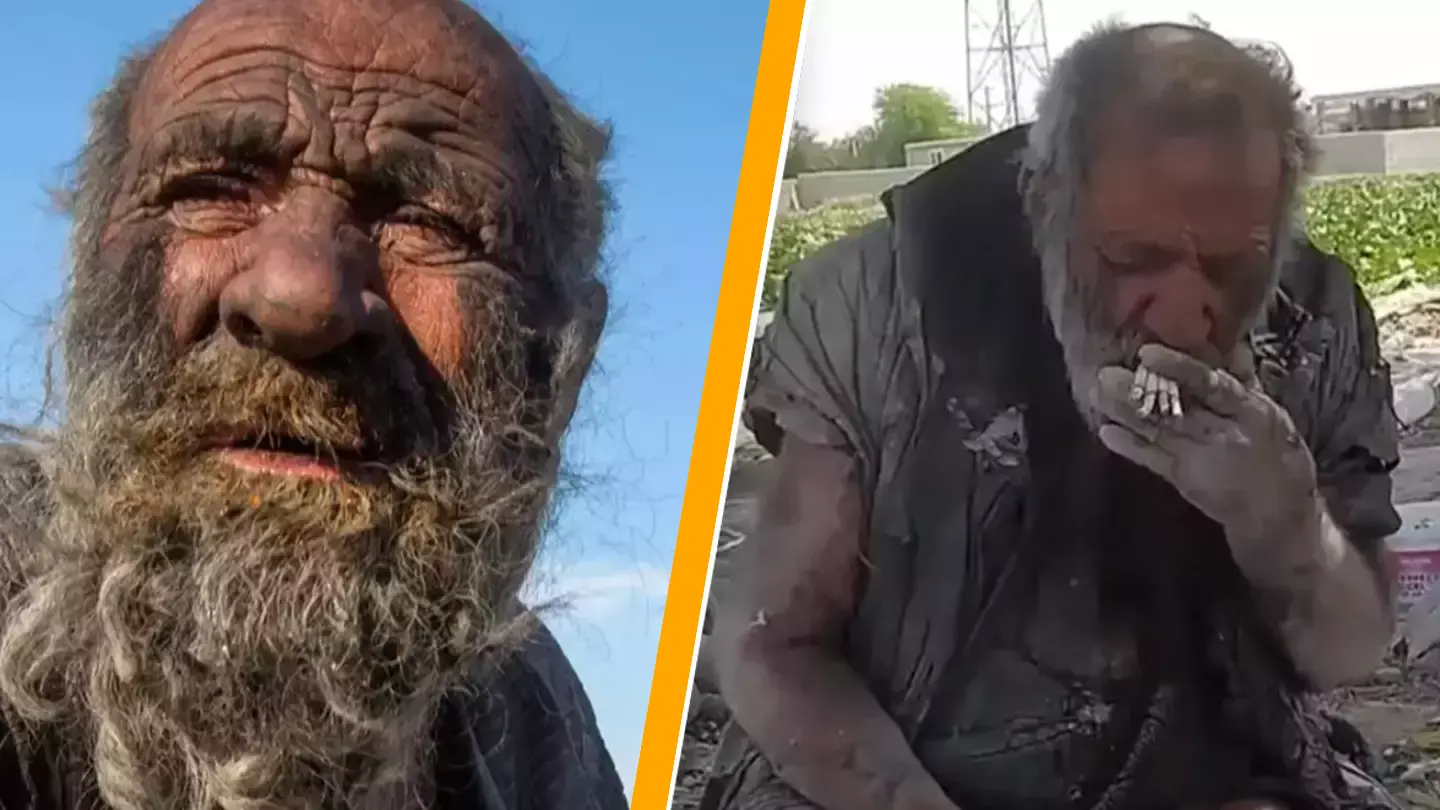The reason why the man dubbed the ‘world’s dirtiest man’ avoided bathing for over six decades is believed to be quite tragic.
Amou Haj passed away at 94 in October 2022, but before his death, he became famously known in his Iranian community for his unusual lifestyle choice of not washing for more than 60 years.
He abstained from bathing for over half a century.
According to The Tehran Times, Haj was known to consume roadkill and smoke a pipe filled with animal waste.
Despite his aversion to water for washing, Amou enjoyed eating porcupine meat and drank about 1.5 gallons of water daily.
He was also a heavy smoker, often seen smoking multiple cigarettes simultaneously.
In the southern province of Fars, where Amou lived, local villagers eventually persuaded him to bathe. However, after years without washing, his skin had accumulated ‘soot and puss’.
This bath seemed to have adverse effects, as Iran’s IRNA news agency reported that Haj fell ill shortly after and died a few months later.

Throughout his life, Amou kept his hair short, but not with scissors. Instead, he reportedly singed it off.
The belief is that Amou suffered from ablutophobia, which explains his long avoidance of bathing.
Ablutophobia is an intense fear of bathing, cleaning, or washing. It is categorized as a specific phobia, as noted by Healthline.
Discussing this phobia with The Blade, Dr. Siva Yechoor from The Toledo Clinic said: “Ablutophobia is extremely rare. Right now, we see it more often in people who are older.
“They refuse to get cleaned up, but it’s more of an avoidance behavior than a phobia.”
The doctor elaborated on those he has observed with the condition: “What happens with them is they are usually younger people who had some sort of traumatic experience.

“We had a man in his 20’s who had an almost death experience in a body of water, and developed this aversion and fear of even going into the shower or taking a bath.”
Both genetics and brain function could contribute to the development of ablutophobia.
Symptoms might include sweating, rapid heartbeat, panic attacks, and difficulty breathing.
Ablutophobia can be treated similarly to other mental health issues, typically through therapy. Cognitive behavior therapy (CBT) and exposure therapy are common approaches.
Medication like beta-blockers or sedatives might also be prescribed to manage the symptoms of this condition.

